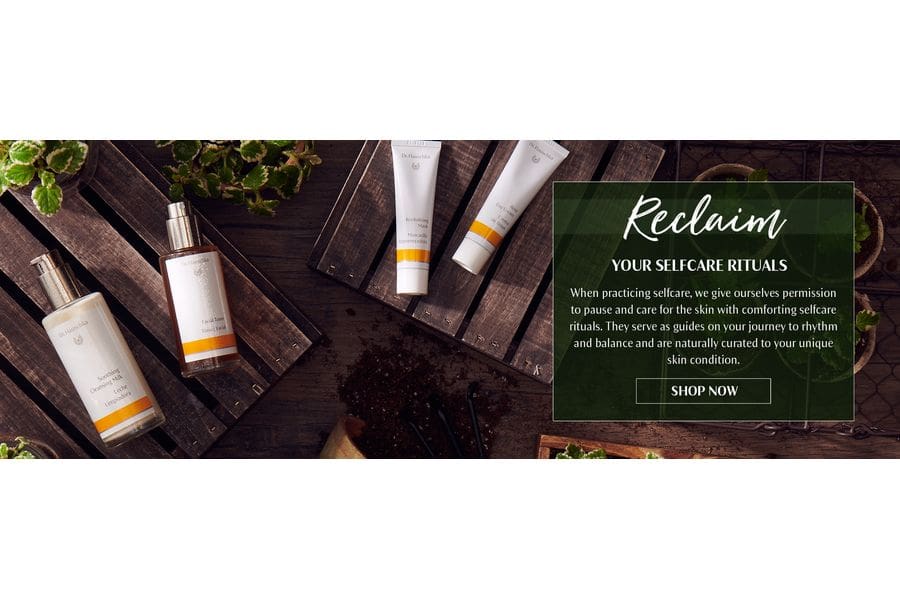Image via Dr. Hauschka
I’m sure you’ve heard of K-Beauty, or Korean Beauty, the skincare mania that made its way to the US a few years back and is still extremely popular. Both luxury beauty counters and drugstores are in on it, but they better make space for another skincare trend…G-Beauty, or German Beauty.
Unlike K-Beauty, which is full of whimsical and innovative products that are best described as cute, G-Beauty dials back the colorful packaging and lengthy claims. Instead, G-Beauty is focused on clean skincare, which has already seen massive growth in western beauty culture.
As you may know, clean beauty sounds straightforward, but is actually rather convoluted. There is no lawful definition of clean beauty, which makes it easy to snag as a marketing term. To some, it means free from fragrance and harmful chemicals. To others, it means natural or cruelty-free.
G-Beauty, however, makes clean beauty a bit more approachable, convenient, and attainable.
To start with, why are German beauty brands so clean? Firstly, they abide by European cosmetic standards, which outlaw most recognized toxins that are still legal in the US and Asia.
The EU has banned more than 1,000 chemicals that are known to be carcinogenic, while the FDA (US-based) has banned 11. Those strict guidelines give German skincare brands a baseline for cleaner formulations.
German engineering is well-respected around the world for its innovation and groundbreaking new science. G-Beauty is held to the same standards, but for skincare.
G-beauty brands tend to invest more time and money into sustainability, research, and quality ingredients. Even their packaging is minimal and sustainably-minded. Many American skincare companies claim to be natural or organic, but aren’t held to the same standards as German brands when it comes to integrity and transparency. Many (but not all), G-Beauty brands make their products in-house from start to finish, from the smallest ingredient to the packaging, rather than outsourcing.
With the lack of transparency the beauty industry has seen, this radical honesty almost sounds too good to be true. The tradeoff? G-Beauty brands tend to be on the pricier side of skincare. When products are plant-based, sustainably sourced, and scientifically proven to be effective, they have to cost more than a product that cuts corners.
Some of the most well-known and accessible G-Beauty brands include:
Dr. Hauschka
Dr. Hauschka has been making plant-based skincare for over 50 years and offers an online customized skin consultation (click here).
Weleda
Weleda is known for their cult-favorite Skin Food Moisturizer (click here).
Dr. Barbara Sturm
Dr. Barbara Sturm is an aesthetics doctor and one of the most discussed women in skincare, developed her own line of anti-aging products spearheaded by custom-blended creams that uses blood drawn from the patient (click here).
Babor
Babor is a results-driven, vegan skincare company with a highly regarded reputation and highly potent ingredients (click here).
These are just a handful of the most common G-Beauty brands we have access to in the states, but with cleaner beauty becoming more and more coveted by the day, it looks like we might be seeing more G-beauty in American skincare’s future.
Be aware that skincare experts advise that you do more research than finding a “made in Germany” sticker on your products. G-beauty, even with its impressive track record, is still just an ambiguous marketing tool. Always be sure to do your own research on the brands you shop from. The most fail-safe way to know if a skincare product is “clean” is to read the ingredient list.






